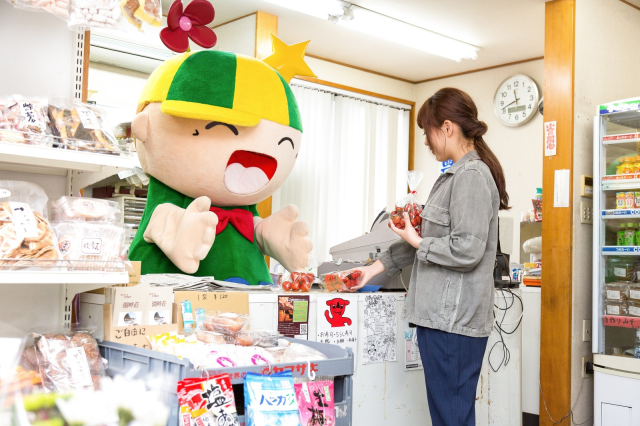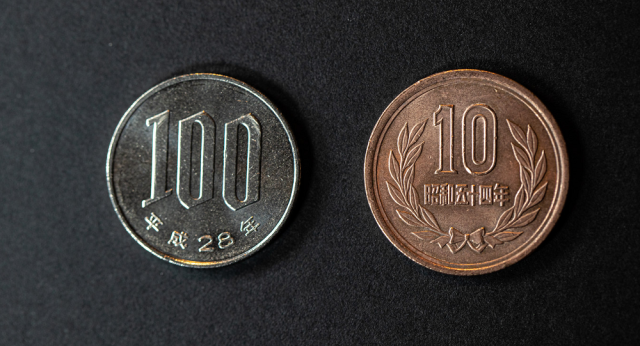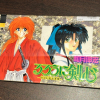
Japan is known for its excellent customer service, but being an excellent customer is important too.
With Japan’s incredibly high standards for customer service, cashiers are expected to be polite, well-groomed, and efficient. After all, if a store offers a sub-par shopping experience, Japanese shoppers are quick to go looking for a better one someplace else.
But human interactions, even those as simple as paying for your Gundam head gold-covered tofu or self-designed Uniqlo Pokémon T-shirt, are two-way affairs, and if there are things cashiers should do for customers, so too are there things customers should do for cashiers, as highlighted in a recent tweet from Japanese Twitter user @moroQma.
全人類がレジ打ちを体験してほしい
— 諸隈元シュタイン (@moroQma) June 7, 2020
と僕は本屋でバイトした15年間ずっと思ってたんですが切なる希望は要するに、
・商品を渡す時「お願いしまーす」
・お釣りを渡される時「どーもっ」
ほんとこれだけです
言い方はテキトーでいいです
お客様がこれを言ってくれるだけで店員の心がどれだけ軽くなるか
“I think everyone should spend some time working as a cashier, to know what it feels like. That’s what I felt for the entire 15 years I worked part-time in a bookstore, and the things I desperately wish customers would do are:
● Say ‘Please’ when they bring their items to the register
● Say ‘Thank you’ when they receive their changeThat’s really all I want. You can use whatever phrasing you feel like. If customers would just say these things, clerks would feel so much happier.”
A number of other Twitter users were quick to second the call for such basic courtesy:
“The only people who’d disagree with that are people who’ve never worked in the service industry.”
“I always say ‘Thank you,’ but I never thought about saying ‘Please.’ But really, saying both should be common sense.”
“When customers say ‘Please’ and ‘Thank you,’ it makes my shift at the supermarket I work at so much easier.”
“OK! Now I feel confident enough to say these to the girl who works the register when I go shopping tomorrow.”
▼ “Thank you!”
In keeping with the theme of “other people are people too,” it’s probably best to consider that not every silent customer is necessarily of the mind that clerks aren’t deserving of respect and politeness. With Japan’s high population density, when you’re getting rung up at a store, there’s a pretty high chance that there are other people waiting in line behind you, and the general consensus is that the transaction should be completed as quickly as possible, and some shoppers may feel that speaking up will slow down the process.
However, “Please” can be said as you’re setting the items you’re buying down on the counter, and “Thank you” as you’re pocketing your change, so the delays they cause, at most, are fractions of a second. If you’d like to vocally let the cashier know that you value their effort and service, the phrase to use for please, in this sort of instance, is “Onegai shimasu,” and for “Thank you” “Arigatou” works fine, or you can even use the shorter, snappier “Doumo” if you want to keep things more casual.
But what if you, as a non-Japanese native speaker, forget those phrases? Don’t sweat it – if you’re a visibly obvious foreigner, most people in Japan are willing to cut you some slack regarding the local language and etiquette. However, you don’t need to be able to speak a word of Japanese to look at the cashier and give a slight, gentle bow of your head, a gesture that communicates both “Please” and “Thank you” pretty easily.
Oh, and if you want to really polish your Japanese shopping manners, here are six more things to keep in mind.
Source: Twitter/@moroQma via Hachima Kiko
Top image: Pakutaso
Insert image: Pakutaso
● Want to hear about SoraNews24’s latest articles as soon as they’re published? Follow us on Facebook and Twitter!


 Japanese politeness is a myth: One person’s tale strikes a chord with people around the country
Japanese politeness is a myth: One person’s tale strikes a chord with people around the country Japanese commenters applaud tweet denouncing over-entitled customers
Japanese commenters applaud tweet denouncing over-entitled customers Ultra-enthusiastic Japanese Family Mart employee is the height of customer service
Ultra-enthusiastic Japanese Family Mart employee is the height of customer service Blink and you’ll miss what riled racists in this Japanese McDonald’s ad 【Video】
Blink and you’ll miss what riled racists in this Japanese McDonald’s ad 【Video】 Here’s why Japanese supermarkets play “cheap” background music all day, according to Twitter
Here’s why Japanese supermarkets play “cheap” background music all day, according to Twitter Demon Slayer: Kimetsu no Yaiba gets new roller coaster attractions and food at Universal Studios Japan
Demon Slayer: Kimetsu no Yaiba gets new roller coaster attractions and food at Universal Studios Japan How to order snacks on a Shinkansen bullet train in Japan
How to order snacks on a Shinkansen bullet train in Japan Nintendo history you can feel – Super NES, N64, and GameCube controllers become capsule toys
Nintendo history you can feel – Super NES, N64, and GameCube controllers become capsule toys New Nintendo Lego kit is a beautiful piece of moving pixel art of Mario and Yoshi【Photos】
New Nintendo Lego kit is a beautiful piece of moving pixel art of Mario and Yoshi【Photos】 McDonald’s adds a new Cheese Bacon Potato Pie to its menu in Japan for a limited time
McDonald’s adds a new Cheese Bacon Potato Pie to its menu in Japan for a limited time Japan’s new difficult-to-drink-from beer glass protects your liver, but it’s a brutal experience
Japan’s new difficult-to-drink-from beer glass protects your liver, but it’s a brutal experience Burger King Japan suddenly adds Dr. Pepper and Dr. Pepper floats to its menu nationwide
Burger King Japan suddenly adds Dr. Pepper and Dr. Pepper floats to its menu nationwide Japan’s foreign population reaches historic milestone following largest-ever single-year surge
Japan’s foreign population reaches historic milestone following largest-ever single-year surge Shinjuku izakaya’s all-you-can-eat-and-drink plan is one of Tokyo’s best secret cheap eats
Shinjuku izakaya’s all-you-can-eat-and-drink plan is one of Tokyo’s best secret cheap eats Creator of Rurouni Kenshin manga/anime avoids jail time in child pornography possession case
Creator of Rurouni Kenshin manga/anime avoids jail time in child pornography possession case Hello, cosmetics! Clinique teams up with Hello Kitty this summer for first-time collaboration
Hello, cosmetics! Clinique teams up with Hello Kitty this summer for first-time collaboration “The most Delicious Cup Noodle in history” – Japan’s French Cup Noodle wins our heart【Taste test】
“The most Delicious Cup Noodle in history” – Japan’s French Cup Noodle wins our heart【Taste test】 Starbucks releases a cute Frappuccino and Unicorn Cake…but not in Japan
Starbucks releases a cute Frappuccino and Unicorn Cake…but not in Japan Kyoto Tower mascot termination reveals dark side behind cute Japanese characters
Kyoto Tower mascot termination reveals dark side behind cute Japanese characters McDonald’s Japan’s Soft Twist Tower: A phantom ice cream only sold at select branches
McDonald’s Japan’s Soft Twist Tower: A phantom ice cream only sold at select branches Yabai Ramen: What makes this Japanese ramen so dangerous?
Yabai Ramen: What makes this Japanese ramen so dangerous? Finally! Nintendo Japan expands Switch 8-bit controller sales to everybody, Online member or not
Finally! Nintendo Japan expands Switch 8-bit controller sales to everybody, Online member or not Japanese government wants to build luxury resorts in all national parks for foreign tourists
Japanese government wants to build luxury resorts in all national parks for foreign tourists To combat declining birth rate, Japan to begin offering “Breeding Visas” to foreigners
To combat declining birth rate, Japan to begin offering “Breeding Visas” to foreigners 10 things you should buy at 7-Eleven in Japan
10 things you should buy at 7-Eleven in Japan Studio Ghibli releases anime heroine cosplay dresses that are super comfy to wear
Studio Ghibli releases anime heroine cosplay dresses that are super comfy to wear Woman charged for driving suitcase without a license in Osaka
Woman charged for driving suitcase without a license in Osaka Studio Ghibli unveils My Neighbour Totoro miniature house model
Studio Ghibli unveils My Neighbour Totoro miniature house model Kyoto experiencing problems with foreign tourists not paying for bus fares, but not on purpose
Kyoto experiencing problems with foreign tourists not paying for bus fares, but not on purpose Fighting mild hunger with a Japanese soda that turns into jelly in the stomach【Taste test】
Fighting mild hunger with a Japanese soda that turns into jelly in the stomach【Taste test】 Studio Ghibli’s Howl’s Moving Castle tapestry unveiled in Japan for first time
Studio Ghibli’s Howl’s Moving Castle tapestry unveiled in Japan for first time McDonald’s new Happy Meals offer up cute and practical Sanrio lifestyle goods
McDonald’s new Happy Meals offer up cute and practical Sanrio lifestyle goods Sales of Japan’s most convenient train ticket/shopping payment cards suspended indefinitely
Sales of Japan’s most convenient train ticket/shopping payment cards suspended indefinitely Sold-out Studio Ghibli desktop humidifiers are back so Totoro can help you through the dry season
Sold-out Studio Ghibli desktop humidifiers are back so Totoro can help you through the dry season Japanese government to make first change to romanization spelling rules since the 1950s
Japanese government to make first change to romanization spelling rules since the 1950s Foreigner’s request for help in Tokyo makes us sad for the state of society
Foreigner’s request for help in Tokyo makes us sad for the state of society Ghibli founders Toshio Suzuki and Hayao Miyazaki contribute to Japanese whisky Totoro label design
Ghibli founders Toshio Suzuki and Hayao Miyazaki contribute to Japanese whisky Totoro label design Doraemon found buried at sea as scene from 1993 anime becomes real life【Photos】
Doraemon found buried at sea as scene from 1993 anime becomes real life【Photos】 Tokyo’s most famous Starbucks is closed
Tokyo’s most famous Starbucks is closed Princesses, fruits, and blacksmiths: Study reveals the 30 most unusual family names in Japan
Princesses, fruits, and blacksmiths: Study reveals the 30 most unusual family names in Japan Japanese candy factory plays “thank you” constantly over speakers so its snacks will taste good
Japanese candy factory plays “thank you” constantly over speakers so its snacks will taste good Letter from first-grade daughter to her father is too cute and too deep for Japanese Internet
Letter from first-grade daughter to her father is too cute and too deep for Japanese Internet Message to foreigners at Japanese convenience store sparks controversy online
Message to foreigners at Japanese convenience store sparks controversy online Six ways to avoid looking like an “idiot” when shopping at Japanese convenience stores
Six ways to avoid looking like an “idiot” when shopping at Japanese convenience stores Japanese expat remembers the words that changed his life when he started working in Australia
Japanese expat remembers the words that changed his life when he started working in Australia It’s now legal to buy beer and cigarettes at self-checkout registers in Japan
It’s now legal to buy beer and cigarettes at self-checkout registers in Japan We ask Japanese people about their favorite aspects of eight different cultures
We ask Japanese people about their favorite aspects of eight different cultures Japan’s second-largest convenience store chain changes service policy for sake of foreign workers
Japan’s second-largest convenience store chain changes service policy for sake of foreign workers Japanese convenience stores showing “hardening of society” with touch-screen age verification?
Japanese convenience stores showing “hardening of society” with touch-screen age verification? For chivalry, Japanese man tells female store clerk “I aint got nothing to say to you!”
For chivalry, Japanese man tells female store clerk “I aint got nothing to say to you!” “The world does not revolve around you!” Japanese shop clerk unleashes frustration on Twitter
“The world does not revolve around you!” Japanese shop clerk unleashes frustration on Twitter Time for Japan to start tipping taxi drivers? Cab company now gives passengers option in Tokyo
Time for Japan to start tipping taxi drivers? Cab company now gives passengers option in Tokyo Should you say “Itadakimasu,” Japan’s pre-meal expression of thanks, when eating by yourself?
Should you say “Itadakimasu,” Japan’s pre-meal expression of thanks, when eating by yourself? Japanese woman’s heartwarming train encounter reminds us all not to judge too quickly
Japanese woman’s heartwarming train encounter reminds us all not to judge too quickly Should saying thanks at a Japanese convenience store go without saying?
Should saying thanks at a Japanese convenience store go without saying? Saitama man robs 7-Eleven with knives, steals 3 onigiri
Saitama man robs 7-Eleven with knives, steals 3 onigiri
Leave a Reply